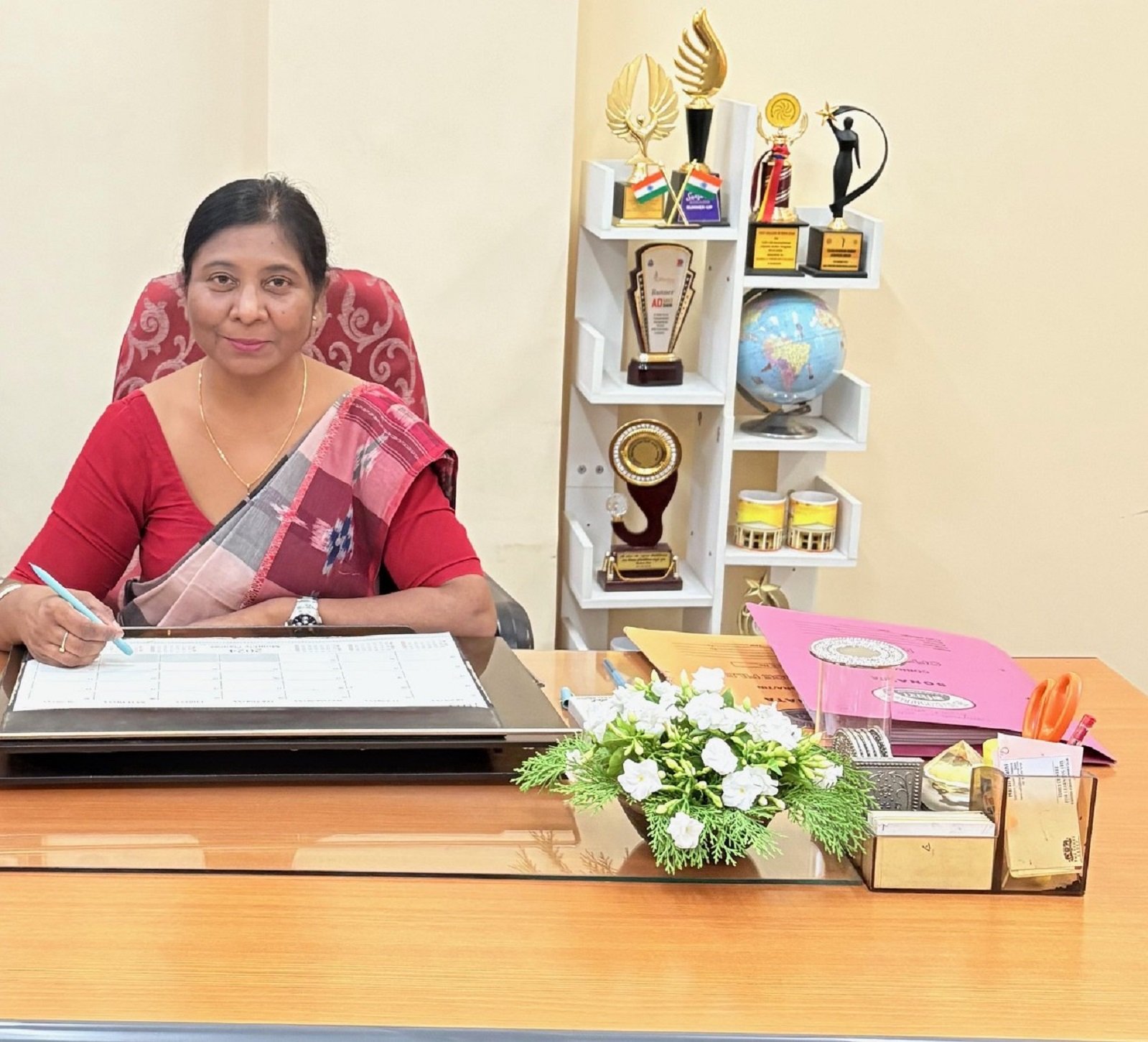Principal Desk

Isabella Thoburn College is run by the Isabella Thoburn Society of the Methodist Church in India and is an Associate College of the University of Lucknow. It was started as a small school on 18th April 1870 by Miss Thoburn, an American Missionary of the Methodist Church who I quote "No people can rise higher as a people than the point to which they educate their women " Her vision was to educate and empower Indian Women for leadership. The school become a College in 1886 and since the last 128 years generations of missionaries , academicians, administrators and students who have passed through the portals of this great institution have enriched society and the nation. It is our constant effort to provide a conducive atmosphere and environment not only for academic excellence but also for the development of a high moral and spiritual character. We have a highly qualified and capable Faculty who not only teach, but also counsel and monitor. The programmes and activities are incorporated in campus life in a way so as to help students to be academically qualified, morally upright and socially responsible . Providing a Christian atmosphere and Christian service to society is our aim. We wish not only to educate but to enlighten and empower the young women who enter our portals with expectations and enthusiasm.
I believe that our students will have fruitful and meaningful stay on campus and that they will enrich campus life with their gifts and talents and in turn contribute their best to society and wherever God places them, to fulfill the motto of the College "We Receive to Give".
Dr. (Maj.) Neerja MasihOfficiating Principal
Isabella Thoburn College
Lucknow

📢 Latest Notices
- Orientation programme 2025-26
- Provisional admission for MSc I year Biotechnology 2nd Merit list

- Provisional Admission for M.A I Year English 2nd Merit list 2025-26
- Provisional Admission for M.A I Year Economics 2nd Merit list 2025-26
- Provisional admission for MSc I Year Zoology second merit list 2025-26
- Provisional admission for MSc I year Chemistry second merit List 2025-26
- Affidavit proforma for PG admission
- Provisional Admission for MA I Sociology First merit List 2025-26
- Provisional Admission for MA I Year English first merit List 2025-26
- Provisional admission for M.Sc I year Chemistry first merit list 2025-26 Provisional Admission for MA I Economics First merit List 2025-26.pdf
- Provisional Admission for MA I Economics First merit List 2025-26
- Provisional Admission for MA I Geography First merit List 2025-26

- Provisional Admission for MSc I Year Biotechnology first merit List 2025-26
- Provisional Admission for MSc I Year Nutrition first merit List 2025-26

- Provisional Admission for MSc I Year Zoology first merit List 2025-26

- BLISC merit list.pdf

- Click here to check UG Merit List and to fill Counselling form 2025-26.
- UG FIRST OPEN MERIT LIST DECLARED DATE
- Last date for the sale and submission of PG
- UG Sale & Submission Last Date
- Revised Notice For U.G. Admission
- Extended Last Date of UG Form Submission
- U.G. Online Admission Application Form 2025-26
- B. Ed. Offline Admission Form 2025-27 (For Christian Minority Only)
- U.G. Admission Application Form 2025-26
- Notice For Admission To P.G. Courses 2025-27
- Notice For Admission To B.L.I.Sc Course 2025-26
- Entrance Schedule
- Offline UG Admission Form Submission Notice
- Notice For Submission Of P.G. Form 2025-27
Welcome to
Isabella Thoburn Degree College
Isabella Thoburn College is run by the Isabella Thoburn Society of the Methodist Church in India and is an Associate College of the University of Lucknow.
Have questions? Get Free Guide
- Read More
- Get Support admission.it@gmail.com
Popular Courses

- 4 Year NEP
- UG Course
UNDER GRADUATE COURSES
- 3 Year
- UG Level Course
VOCATIONAL COURSES
- 2 Year & 1 Year
- UG
PROFESSIONAL COURSES
- 2 Year
- PG Course
POST GRADUATE COURSES
Our
Courses
10+
Our
Faculty
100+
Our
Students
3000+
Our
Departments
20+
Contact Us

-
 Address Gate No. 4 & 5, 7 Faizabad Road, Vivekanandapuri Hydel Colony, Balmiki Nagar, Lucknow - 226007 UP India
Address Gate No. 4 & 5, 7 Faizabad Road, Vivekanandapuri Hydel Colony, Balmiki Nagar, Lucknow - 226007 UP India
-
 Phone 0522-2321107
Phone 0522-2321107
-
 Email principal _degree@itcollegesociety.in
Email principal _degree@itcollegesociety.in





















